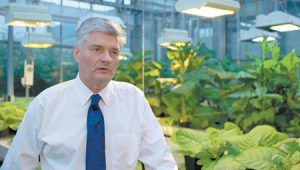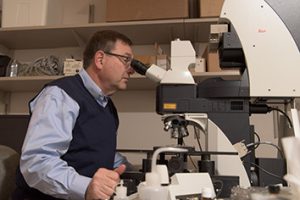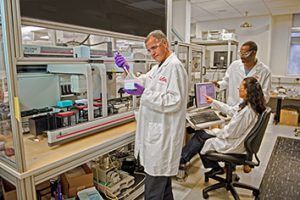Is marijuana debate at a tipping point?
A fight over whether Indiana should legalize medical marijuana seems all but inevitable now.
A fight over whether Indiana should legalize medical marijuana seems all but inevitable now.
Taltz, launched in 2016 to treat plaque psoriasis, won approval from the Food and Drug Administration for a second indication—treating adults with a form of arthritis.
The Food and Drug Administration wants to help patients get faster access to promising cancer treatments, FDA Commissioner Scott Gottlieb told House lawmakers Thursday.
Thirty-four new drugs—treating everything from cancer to rare genetic diseases—have been approved so far this year. That’s on pace to nearly double last year’s approvals.

Over the past 20 years, while the price of a gallon of milk climbed 23 percent and the sticker on a Dodge Caravan minivan rose 21 percent, the list price of the insulin Humalog shot up 1,157 percent.
The companies say the drug, now in late-stage clinical trials, could be more effective for pain treatment than opioids—a dangerous category of pain killers that includes hydrocodone, morphine and fentanyl—without the abuse potential of such medications.
The drug, which has the proposed brand name Olumiant and is approved for use in Europe, was expected to be a big seller.

Rainer Fischer’s goal is to spur collaboration in research and commercialization of life sciences products.

Purdue University Professor You-Yeon Won’s development, called radio-luminescent nanoparticles, is designed to enhance the cancer-cell-killing effects of radiation treatment.
A small Carmel-based biotech firm has signed a deal with international drug company Allergan Plc that is worth at least $50 million and could grow to more than $2 billion under the best-case scenario.

Eli Lilly and Co. employees knew the Alzheimer's treatment solanezumab was not a sure bet. But that didn’t make the pain any less acute after the company announced the drug had failed to demonstrate effectiveness during a 2,100-patient Phase 3 clinical trial.

Biochemist has founded or co-founded five startups since retiring from Eli Lilly and Co. as head of biotechnology research 13 years ago, at age 50.

Within six months, Eli Lilly and Co. could know whether the Food and Drug Administration has approved its latest drug, baricitinib, a once-a-day tablet for treating rheumatoid arthritis.
The rising figures reflect an industry-wide focus on drugs for rare and hard-to-treat diseases, which often come with streamlined reviews, extra patent protections and higher price tags.

A professor in the Indiana School of Medicine is hopeful that an antibiotic cocktail he invented will one day improve the lives of millions of people, thanks in part to the Indiana University Research and Technology Corp., formed in 1997 to make work done by IU faculty and researchers available for commercial development.

For two years, Eli Lilly and Co. has been building a team of immuno-oncology researchers in New York City and has struck a series of deals with other drug companies.

After years of pipeline failures, Eli Lilly and Co. is on a bit of a hot streak. This month alone, the Indianapolis-based drugmaker has reported positive results from clinical trials of four experimental drugs.

In the 1920s, Indianapolis was one of the most innovative cities in the nation. But after “the dark tragedy of the roaring twenties,” Indianapolis lost its edginess for decades and only recently has begun to regain it.
The results of an experimental drug for Alzheimer’s disease provide the best evidence so far that the memory-robbing condition is caused by an errant protein in the brain. Drugmakers including Eli Lilly have been concentrating their Alzheimer’s research on that area.
Tabalumab was expected to generate about $250 million to $300 million a year in sales in several years.